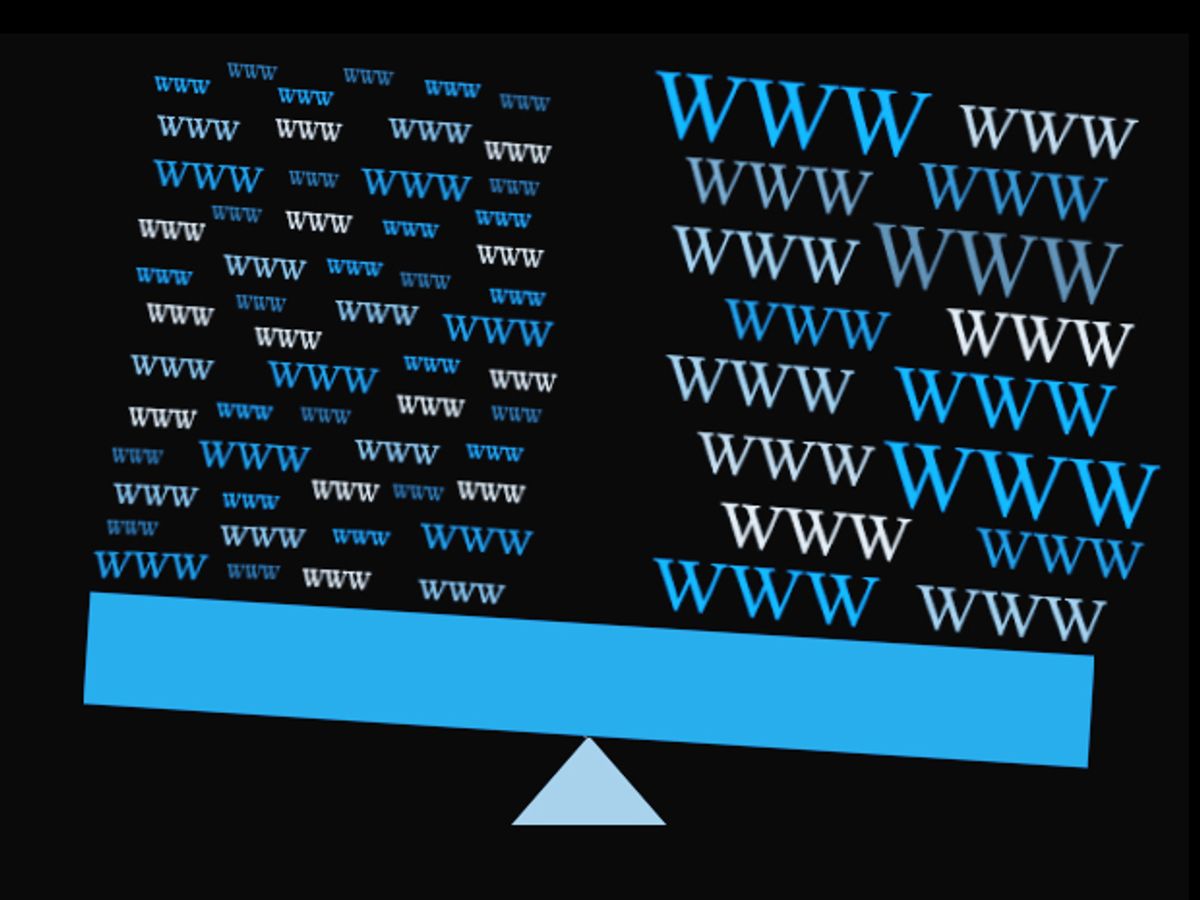Net neutrality's principle of treating all Internet traffic equally may no longer hold under a new U.S. regulatory proposal for broadband providers. But one law and technology expert doesn't think that the sky is falling just because Comcast or Verizon could charge Internet content providers extra for faster delivery of Internet services.
Details emerged this week about a Federal Communications Commission (FCC) proposal that would allow Internet service providers (ISPs) to create Internet "fast lanes" and charge content providers such as Google or Netflix a premium fee to use such a service in delivering their content to consumers. The FCC plans to use a "commercially reasonable" standard on a case-by-case basis to ensure that any new broadband provider plans don't hurt U.S. Internet users, wrote FCC chairman Tom Wheeler, in a blog post last Thursday. Still, the current vagueness of the "commercially reasonable" standard has left plenty of room for doubt on both sides of the net neutrality debate.
"A vague commercial reasonableness rule could be quite restrictive, we just don’t know," says Christopher Yoo, a professor of law, communication and computer & information science at the University of Pennsylvania. "The current FCC proposal may not have the implications that many think."
The "commercially reasonable" standard has left net neutrality advocates worried that the FCC plan will allow broadband providers to do whatever they want in charging higher fees for preferential Internet traffic delivery—a scenario that advocates say would favor established tech giants such as Google or Netflix over new startups trying to compete in areas such as online movie streaming or online gaming. Michael Weinberg, vice president at Public Knowledge, a not-for-profit public interest group that works to protect an open Internet, voiced such concerns in a 25 April statement.
The FCC is inviting ISPs to pick winners and losers online. The very essence of a "commercial reasonableness" standard is discrimination. And the core of net neutrality is non discrimination. This is not net neutrality. This standard allows ISPs to impose a new price of entry for innovation on the Internet. When the Commission used a commercial reasonableness standard for wireless data roaming, it explicitly found that it may be commercially reasonable for a broadband ISP to charge an edge provider higher rates because its service is competitively threatening.
But Yoo, director for the Center for Technology, Innovation & Competition at the University of Pennsylvania Law School, thinks the FCC could just as easily use the vagueness of the "commercially reasonable" standard to block broadband providers from offering tiered services that give preferential treatment to content providers that pay extra. He added that the FCC could deliberately use this tactic to avoid another legal defeat following a January 2014 U.S. court decision that struck down the FCC's former net neutrality rules.
"Network neutrality proponents seem to be assuming that the proposed standard would be tantamount to non-regulation," Yoo says. "I’m not sure broadband providers regard the new rules as a green light for doing whatever they want."
In any case, Yoo thinks the end of strict net neutrality rules might not be all that bad. He hopes that the FCC’s easing restrictions on broadband providers’ ability to charge different prices for delivering different Internet content could spur innovation by allowing both established companies and startups to offer new online services tailored for the Internet "fast lane" delivery. For instance, Yoo pointed to the differentiation between standard U.S. first class postal service with overnight FedEx mail and noted how new businesses have grown around the overnight delivery option.
This is no longer the early Internet age where everyone just checked email and browsed websites, Yoo says. Online services such as Internet phone calls, online games, and streaming movies use very different amounts of Internet bandwidth (video streaming from Netflix and YouTube alone already accounts for over half of downstream Internet traffic) and demand different types of reliability. In that sense, Yoo thinks broadband providers should have the option to charge different prices to content providers based on the services they consume.
I think the pressure to provide different levels of service is a reflection of the way the Internet is becoming increasingly diverse. Different [applications] need different levels of security, bandwidth, latency, and other technical dimensions of quality of service. The natural response is for broadband providers to diversify their offerings. One of the concerns I have is that a strict version of net neutrality might prevent that diversification from occurring.
Much will come down to exactly how the FCC chooses to interpret and enforce its "commercially reasonable" standard in overseeing the actions of broadband providers. The FCC plans to hold a meeting on 15 May to discuss the new proposal and has set up an inbox for the public to comment on the future of the open Internet.
Jeremy Hsu has been working as a science and technology journalist in New York City since 2008. He has written on subjects as diverse as supercomputing and wearable electronics for IEEE Spectrum. When he’s not trying to wrap his head around the latest quantum computing news for Spectrum, he also contributes to a variety of publications such as Scientific American, Discover, Popular Science, and others. He is a graduate of New York University’s Science, Health & Environmental Reporting Program.




